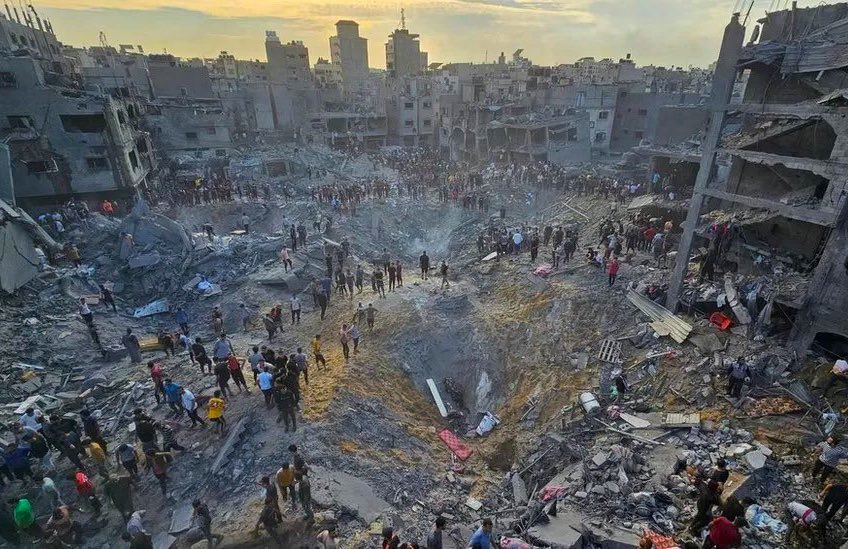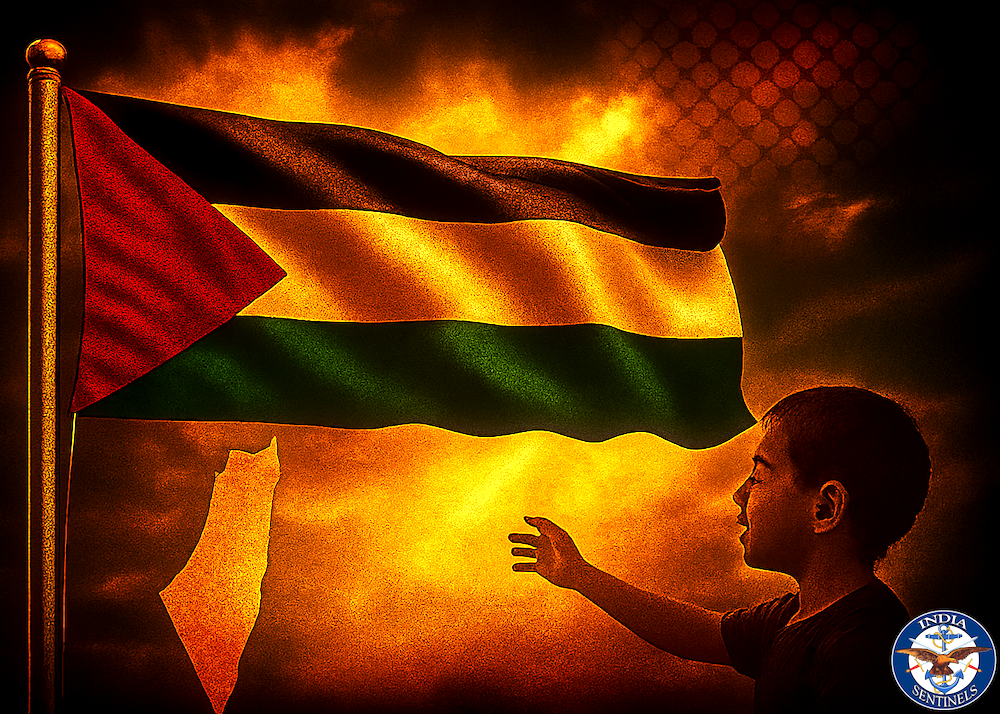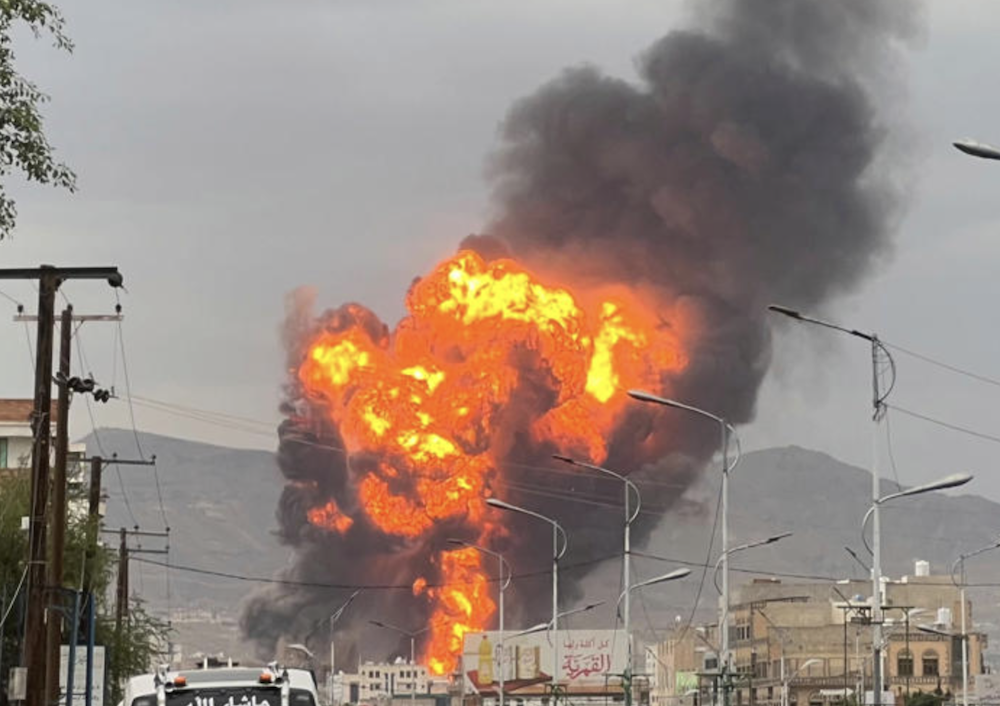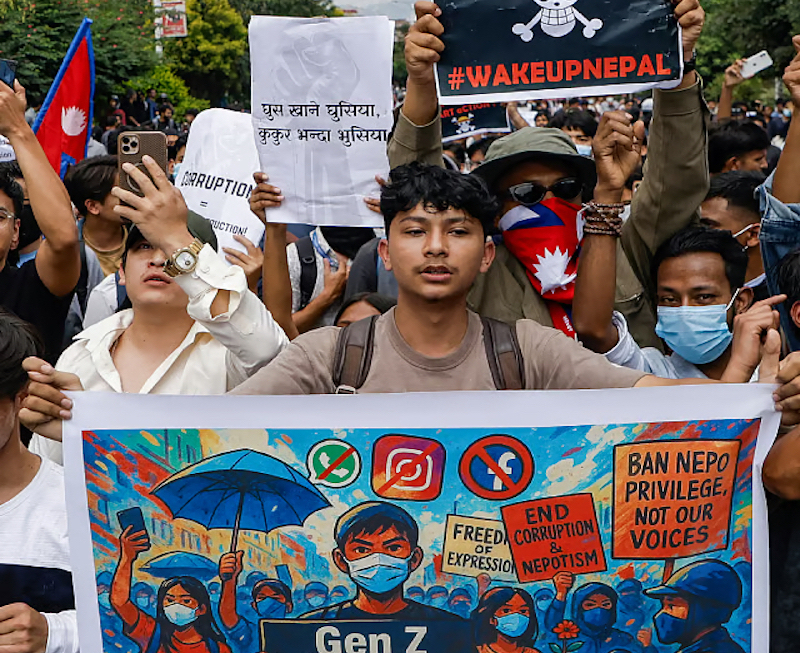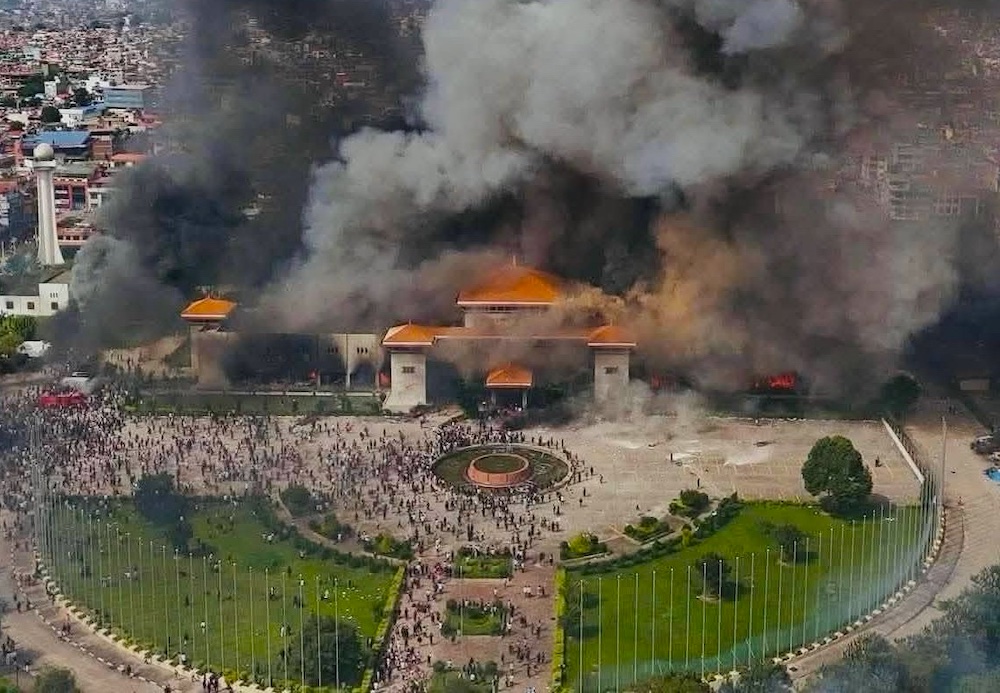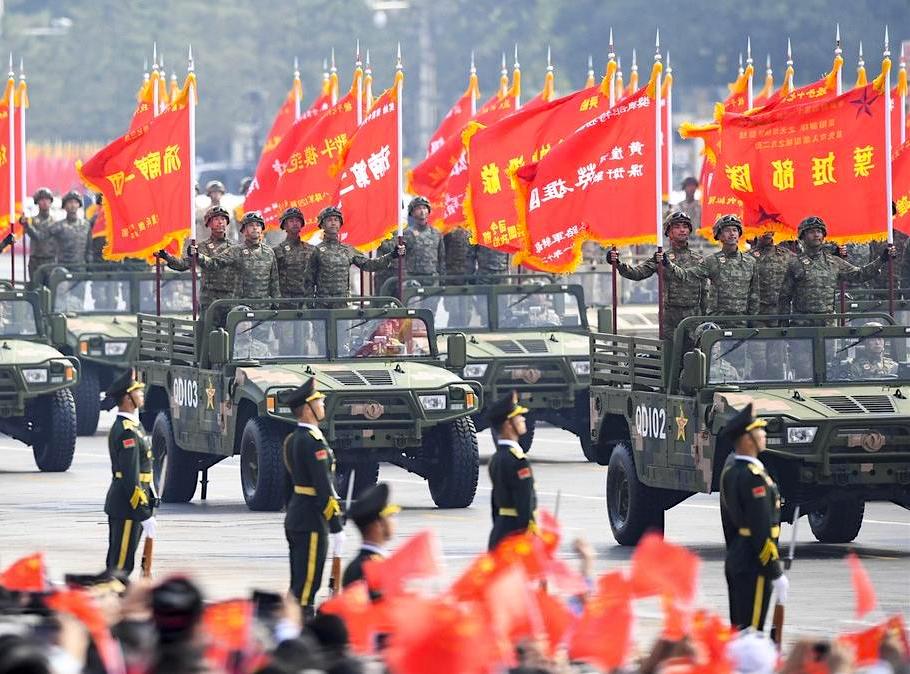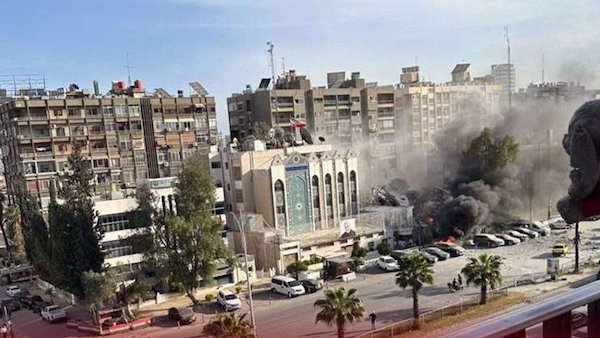 The site of the Israeli airstrike on the Iranian consulate. (Photo: Facebook)
The site of the Israeli airstrike on the Iranian consulate. (Photo: Facebook)
New Delhi: In a dramatic escalation of tensions in the Middle East, Israel launched an airstrike, on Monday, targeting the Iranian consulate annex building in the Syrian capital, Damascus. The attack resulted in the complete destruction of the building and the deaths of at least 16 people, according to senior Iranian officials.
Among the dead was Brigadier General Mohammad Reza Zahedi – a senior commander in Iran’s elite Quds Force, seven other Iranian Revolutionary Guard Corps (IRGC) officers, five Iran-backed militiamen, one Hezbollah fighter, one Iranian advisor, and two Syrian civilians.
Israel has not officially claimed responsibility for the attack. However, four anonymous Israeli officials confirmed to the New York Times that Israel was behind the strike. Iran, for its part, has condemned the attack as a “blatant violation of international law” and vowed a strong response.
The strike’s significance goes beyond the immediate casualties. The Iranian consulate in Damascus enjoys protected status under the “Vienna Convention on Consular Relations”, which outlines diplomatic immunity for consular buildings and personnel. This raises serious questions about the legality of the Israeli action.
Experts warn that the attack could be a major turning point in the ongoing proxy conflict between Israel and Iran. The two nations have been engaged in a shadow war for years, with Israel carrying out numerous airstrikes in Syria targeting Iranian nuclear scientists, IRGC officers, Iran-backed militias, and suspected weapons transfers.
However, directly targeting an Iranian diplomatic outpost represents a significant escalation. Analysts fear this strike could trigger a wider regional conflict as Iran has been left with no choice but to retaliate in some form or other, partly because as a deterrence for future such actions by its adversaries, especially Israel, and partly to cool down domestic tempers.
The timing of the attack also adds to the complexity of the situation. It occurred amid heightened tensions between Israel and Iran, fuelled by the ongoing Israel-Hamas conflict in Gaza, in which around 35,000 Palestinian civilians have died and over 75,000 seriously wounded. Seventy-four per cent of the casualties are women and children.
The international community has expressed concern about the Israeli airstrike. The UN secretary general, António Guterres, called for “maximum restraint” from all sides and urged the two countries to avoid actions that could further destabilize the region.
The long-term consequences of the attack remain to be seen. However, Israel’s actions have significantly raised the stakes in the already volatile Middle East landscape. Whether Iran’s promised response will be measured or lead to a wider conflict remains a major concern for the international community.



